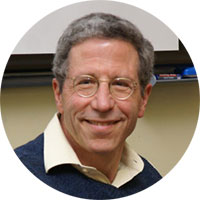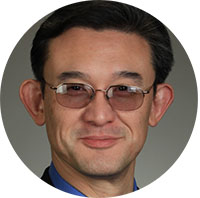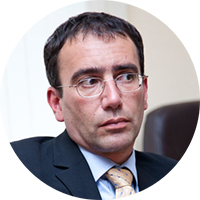'It’s Good to See that Society Is Starting to Listen to Scholars’ Opinion'
Last Friday, the day before Russian Science Day, we published stories by several HSE scientists on how they got into science. We received a lot of responses, so we decided to continue the project. Today, another four HSE scholars, including one Nobel laureate, discuss their journeys into science.

Eric Maskin, Nobel laureate, Adams University Professor at Harvard, Chief Researcher of the Research Laboratory of Decision Analysis
I was lucky in high school to have an inspirational mathematics teacher, Francis Piersa. He made me see that mathematics is a subject of great beauty, as well as power. On the basis of that experience, I specialized in mathematics as an undergraduate at Harvard. But, almost by accident, I sat in on an economics lecture course given by Kenneth Arrow (I didn’t realize at the time how important he has been to the field). Arrow’s lectures showed me that economics can combine the rigor, the power, and occasionally even the beauty of mathematics, while also having a great deal to say about the world we live in. Indeed, economics can help make that world a better place. I found this to be an irresistible combination---and have stayed with economics ever since.

Fedor Bogomolov, Academic Supervisor at the Laboratory of Algebraic Geometry and its Applications, Full Professor at New York University (United States)
For me, it was undoubtedly taking part in mathematics clubs at Moscow University that played the decisive role. From about third year in school I started reading popular books by Perelman, and others, about science. There was widespread respect for science and academic research in society at that time (in the 1950s), and my mother and father both worked in physics, which all combined to give me a vague sense of what my future choice would be. In my fifth year at school I made a new friend, Semyon Vishik – and his parents were mathematicians. He knew what he wanted. For him, mathematics was the only choice. And it was on his initiative that I first joined a mathematics club in the old building of Moscow State University, in autumn 1959. It was led by A. Leman and other graduate students at the University’s Department of Mechanics and Mathematics, and was enthralling. New types of problems were solved there and others – like in an Olympiad – were discussed. It was this discussion, which was really open, was new and truly enthralling.
It didn’t matter if you were a student, graduate student, or at school, all that mattered was that you present an interesting idea or beautiful solution. Those who had the clearest understanding of the problems under discussion were recognized as authorities, and respected. That’s when I started taking part in these clubs regularly, and then joined one of the first Moscow mathematics classes that opened at School Number 425, and later moved to School Number 444. Shvartsburd was the organizer and driving force behind the creation of this specialized mathematical education, and it is hard to overestimate his role. In our class, in addition to the usual subjects, we also learned programming, numerical methods and other areas of mathematics.
From 1960 I started to take part in the Moscow and All-Russian Mathematical Olympiads, and with some success. I received 3rd prize in all of them, which gave me a certain status among people who were involved in the club scene and who associated with it. Then I started taking part in a beta-club run by Nikolay Konstantinov, which was mainly focused on real problems in contemporary mathematics. There were lots of invited speakers and one of the academics, a biology faculty graduate student known as ‘chromosome’ gave a talk about genetics.
I still regret that I wasn’t able to go in summer with the group to Timofeev-Rissovsky at Miassovo.
In year 10 Vishik and I started going to student seminars by Eugene Dynkin at Moscow State University, and the following year completed my first piece of work on a problem set by him, which Ivan Petrovsky presented in the USSR Academy of Sciences Reports (it turned out that this result had been achieved in the United States, and I withdrew it).
But that time I already knew what I wanted, and in 1964 I enrolled in the Department of Mechanics and Mathematics. It’s hard to pinpoint the exact moment I decided to become a mathematician, it was a natural progression. But the atmosphere at home, getting into the intellectually rich environment of the mathematics clubs at a key formative age, when you start to reconsider authorities and choose your future course, played a vital role.

John Nye, Academic Supervisor, International Laboratory for Institutional Analysis of Economic Reforms, Professor, George Mason University, Virginia, USA
I initially wanted to become a physicist and managed to go to Caltech for a BS in Physics from the Philippines thanks to a generous scholarship. However, I eventually realized that I was more interested in social science than the natural sciences. So with the encouragement of my professors, I pursued an M.A. and Ph.D. in economics at Northwestern. Afterwards I was fortunate to land a job at Washington University in St. Louis where I worked with Douglass North and the Center for Political Economy for 22 years. There I helped found ISNIE and also served as one of the first lecturers at the Coase Institute. In 2007 I moved to GMU to start a new research group in economic history and in 2011 I joined HSE as an international advisor and research director.

Dirk Meissner, PhD, Deputy Head of the Research Laboratory for Science and Technology Studies, HSE Institute for Statistical Studies and Economics of Knowledge; Professor at HSE ISSEK Department of Educational Programmes
My motivation stems from my curiosity to enter new fields which are least known to me, exploring ways to find solutions for problems and even to detect challenges which might evolve. For me it’s about stimulating creativity and interacting with people with different backgrounds and attitudes which makes the life of a scientist a very special one. I feel that scientists think outside the mainstream, it’s an honour to see how the initial scientist’s thoughts are diffusing, eventually, and show at least some minor impact, be it just the fact that the mainstream starts considering what the scientist is thinking.
Read in part one: comics about space, rural school with one teacher and the threat of war as career start.
See also:
‘The Role of an Academic Supervisor Is Not about a Fixed Schedule’
Pavel Voloshchuk has been developing and researching educational products for 14 years. Since August 2024, he has led two master's programmes at the HSE Faculty of Computer Science: ‘Research and Entrepreneurship in Artificial Intelligence’ and ‘Master of Data Science.’ In this interview, he talks about his career path, time management, and the specifics of academic supervision.
Representatives of HSE University among Winners of Znanie.Lecturer Competition
On February 5, 2025, the National Centre ‘Russia’ in Moscow hosted an awards ceremony for the winners of the fourth season of the All-Russian competition Znanie.Lecturer organised by the Russian Society Znanie (translated as Knowledge in English). The winners included 70 lecturers from 37 Russian regions. Representatives of HSE University were among the best of the best.
Faculty of Economic Sciences Wishes Colleagues and Students a Happy New Year
As we look forward to 2025, FES professors have prepared a video message for students and colleagues. In this heartfelt address, they convey their warmest wishes, congratulations, and aspirations for a year filled with fruitful endeavors and remarkable accomplishments.
‘English Will Still Be the Global Language of Scientific Communication’
The HSE University Academic Writing Centre (AWC) was created to offer linguistic support to researchers writing articles in English. We spoke to the head of the AWC, Svetlana Suchkova, about the centre’s current initiatives, whether it has had to change the focus of its activities, and why HSE University staff come to the centre.
‘I Prefer Work to Most Types of Pastime’
Ivan Arzhantsev has headed up the Faculty of Computer Science since it was established in 2014. He has never been a specialist in Computer Science – all his life he’s been engaged in mathematics. On his 50th birthday, he shared with HSE Life how this has helped him to lead the best HSE faculty.
HSE University in Perm: The Upcoming Anniversary
On September 12, 1997, HSE University in Perm was established by decree of the Government of the Russian Federation. A year later, the university enrolled its first students.
'Learning what You Really Need'
Anastasia Likhacheva was appointed Dean of the Faculty of World Economy and International Affairs in November 2021. During her first six months in this position, she has faced numerous new challenges. In her interview with HSE University Life, she explains how she and the Faculty have been coping, why she spent just one year working outside of academia, and how prospective students can rethink their future careers in international relations.
'We Pursue Whatever Interests Us!'
MIEM HSE Professor Lev Shchur is celebrating his 70th birthday. In his recent interview with MIEM HSE News Service, he talks about the first scientific computer network created in the Soviet Union, the state of computational physics today, and the current online and offline work being conducted by his research team of undergraduates and faculty members.
Linguistic Pleasure: HSE University’s Academic Writing Centre
Founded in 2011, the Academic Writing Centre strives to help HSE University faculty improve their academic and research-writing skills in English. HSE University bulletin Okna spoke to several teachers and researchers who have used the AWC’s services over the decade.
‘Our Distinction Is Our Core Areas of Research’
In his interview for the HSE LooK, Evgenii A. Krouk, the Acting Director of HSE Tikhonov Moscow Institute of Electronics and Mathematics, talks about the distinctive features that set the institute apart, the place of project-based learning on the curriculum, research areas with the highest potential, and his vision for HSE MIEM future development.


